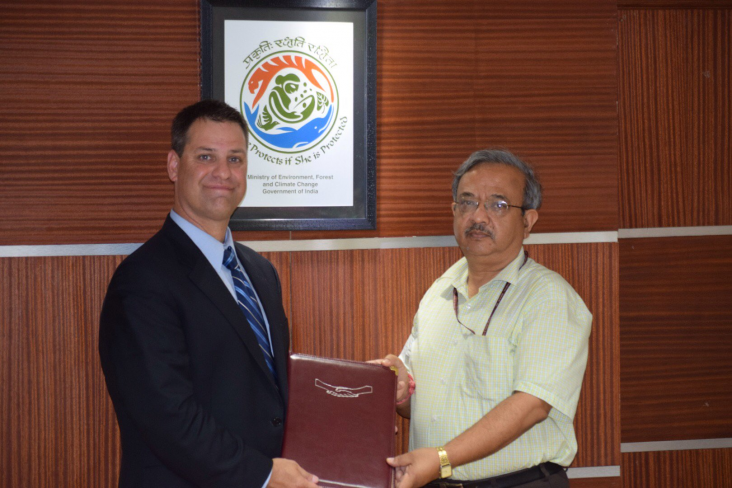
For Immediate Release
New Delhi: The U.S. Agency for International Development (USAID) announced five new partnerships, four of which are with the Government of India, to expand U.S.-India cooperation on clean energy, environment and climate change. USAID Assistant Administrator for Asia, Mr. Jonathan Stivers, was in Delhi to represent the U.S. development agency at the second U.S.-India Strategic and Commercial Dialogue. Mr. Stivers announced the partnerships in a series of events last week, highlighting that “USAID welcomes and appreciates this historic opportunity to play a useful role in India’s path forward.”
“As part of the expansion of U.S.-India bilateral cooperation, USAID will continue to support the Ministry of Power, Ministry of New and Renewable Energy, and Ministry of Environment, Forests and Climate Change to help India transition to a high-performing, low-emission, energy-secure economy,” added Stivers.
First among these new partnerships is USAID’s commitment to work with the Bangalore power utility BESCOM and U.S.-based company, Innovari, to launch the first grid integration pilot under the “Greening the Grid” (GTG) initiative. GTG is a joint USAID and Ministry of Power initiative to strengthen India’s power grid to manage large-scale integration of renewable energy. India aims to provide 24/7 power to all Indian households by 2020 by adding and integrating 175 gigawatts of renewable energy into the national grid.
Under the next partnership, the Ministry of New and Renewable Energy (MNRE) and USAID agreed to expand their solar rooftop program to an additional eight states and 15 utilities. During the first phase of this program, the USAID and MNRE supported the states of Rajasthan, Karnataka and Madhya Pradesh to introduce appropriate net-metering policies and regulations, and provided technical assistance to the state distribution utilities implementing solar rooftop programs. In the expanded program, USAID will also partner with MNRE to train 5,000 utility engineers and 1,000 bankers and entrepreneurs on installation and operation best practices for solar rooftop systems.
In support of efficient energy usage, USAID also announced a partnership with the Ministry of Power’s public sector energy efficiency company, Energy Efficiency Services Limited, to transform India’s markets for super-efficient air conditioners. Currently, fewer than five percent of households have air-conditioners in India, but with rising demand for cooling and better comfort, the growth rate of air-conditioner sales is expected to accelerate to 30 percent per annum over the next five years. To improve urban air quality through energy efficiency, USAID is partnering with the University of Chicago to support the efforts of the Government of India and Gujarat State Pollution Control Board to pilot a market instrument designed to reduce costs for industrial plants to comply with regulatory limits on emissions, and to provide incentives encouraging emission reductions. The first pilot under this partnership will be tested in Gujarat.
During the U.S.-India Joint Working Group on Combating Climate Change, USAID announced its collaboration with the Forest Survey of India (FSI) under the Ministry of Environment, Forest and Climate Change to strengthen the latter’s capacity to better predict forest fires, use high-resolution satellite imagery for forest resource assessment, and develop protocols for strengthening forest inventory. This initiative will mobilize the scientific expertise of the U.S. Forest Service.







Comment
Make a general inquiry or suggest an improvement.